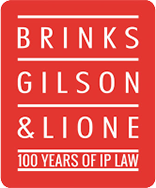On October 18, 2018, Judge Leonard P. Stark dismissed a Hatch-Waxman case involving apixaban (Eliquis®) that had been filed against Mylan Pharmaceuticals, Inc. in the District of Delaware for improper venue in Bristol-Myers Squibb Co. et al. v. Aurobindo Pharma USA Inc. et al., No. 17-cv-374 (D. Del.). Since the Supreme Court’s sea change venue decision TC Heartland LLC v. Kraft Foods Group Brands LLC, 137 S. Ct. 1514 (2017), Mylan has filed a number of motions to dismiss or transfer from various courts to West Virginia, most of which have been unsuccessful. Mylan’s recent success in the apixaban case establishes that venue motions are viable in Delaware even in Hatch-Waxman cases involving numerous consolidated suits pending against other defendants in the same district.
The Supreme Court’s TC Heartland decision held that 28 U.S.C. § 1400(b) is the sole and exclusive provision controlling venue in patent infringement actions. The statute provides:
Any civil action for patent infringement may be brought in the judicial district [1] where the defendant resides, or [2] where the defendant has committed acts of infringement and has a regular and established place of business.
The District of Delaware’s recent decision focused on just two of the potential arguments for venue over Mylan post-TC Heartland. First, the court evaluated whether the Delaware residency of one of Mylan’s subsidiaries could be imputed on Mylan under the first prong of § 1400(b). As a preliminary matter, Judge Stark held that “the residency of one entity may be imputed to another for purposes of satisfying § 1400(b)” where the entities have an alter ego relationship or it is appropriate to pierce the corporate veil. However, Plaintiffs had not met their heavy burden of making such a showing for the Mylan entities. The evidence showed that both entities maintained corporate separateness, that Mylan’s subsidiary was a registered LLC with its own books and records, and that all of those documents are publicly available.
Second, Judge Stark found that 28 U.S.C. § 1391 did not provide an independent basis for venue over Mylan post-TC Heartland. The court reasoned that there is nothing special about Hatch-Waxman cases with respect to venue; they are still civil actions for patent infringement where “venue is governed solely and exclusively by § 1400(b).”
Judge Stark’s dismissal marks an important victory for Mylan in not only the apixaban litigation but also in future cases. Although Mylan will still be subject to Plaintiffs’ protective suit on apixaban in the Northern District of West Virginia, No. 17-cv-00055, Mylan will have the option of proceeding through discovery and trial in West Virginia or moving to stay pending a decision in its co-pending inter partes review proceeding before the Patent Trial and Appeal Board. Further, Mylan’s successful venue motion in Delaware may be persuasive in seeking similar relief in future Delaware actions, even where there may be a large number of related suits in the same venue as there was with apixaban.
Judge Stark’s decision also includes helpful holdings for plaintiffs post-TC Heartland. Judge Stark’s decision opens the door for future plaintiffs to defend venue in Delaware based on imputed residency due to corporate relationships. Further, the decision narrowly addresses only a few of the potential arguments for venue available, suggesting that Mylan may owe its successful motion in part to the fact that Plaintiffs did not make some arguments in the present case.





 />i
/>i
